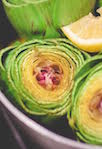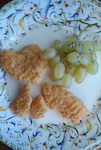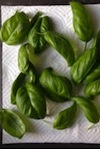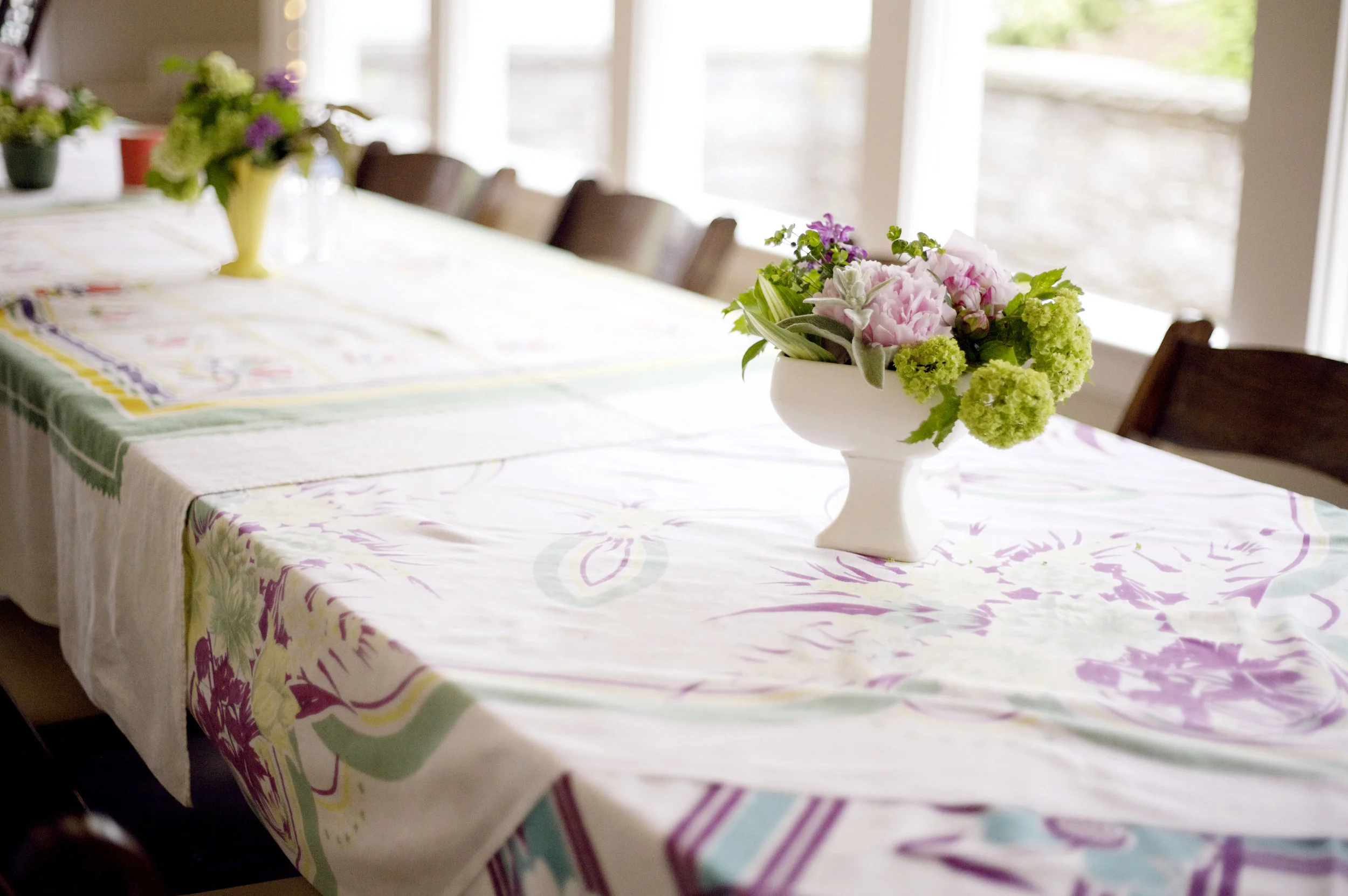Hospitality is a good life, but it’s not an easy life. If you do it enough it won’t look or feel like it came from the beautiful pages of a magazine. True, biblical hospitality is born of grace—grace for the giver and grace for the receiver.
All in Feast
Cooking
I love to roam the food writing section of a bookstore, thumbing through cookbooks and looking for the latest cooking memoir. Though my kitchen shelves are nearly full, I can always squeeze in another book of recipes or something educational and fun to read like Michael Pollan’s Cooked. I feel a kinship with people who work with food and spend untold hours in the kitchen. I’m drawn to their stories like a magnet.
Our Gathering Song
However we hit it, we’re usually all happy by the time we finish the Doxology. No matter how we started, we end in gladness. Singing that poem of praise with these people has lifted my fog or funk or fatigue. We may yet find snark during our meal. One or more of the boys may yet complain or provoke or chew with his mouth open and get a rebuke. The preschooler may yet take my coveted last piece of bread for himself. The baby will undoubtedly throw something gleefully on the floor. But we’ve begun with thanksgiving, which is the least we can do.
 No matter where his pastoral vocation called him—country, city, suburb—Dad found a large vacant lot of lawn or weeds to plow under and plant in long straight rows, ordered in relation to the sun (the corn stalks must not overshadow the tomatoes) and surrounded by winter-squash vines prone to wander outside the frame.
No matter where his pastoral vocation called him—country, city, suburb—Dad found a large vacant lot of lawn or weeds to plow under and plant in long straight rows, ordered in relation to the sun (the corn stalks must not overshadow the tomatoes) and surrounded by winter-squash vines prone to wander outside the frame.
It was not Eden, except in his view.
 When I tell people that I am a food writer, they always ask me what I like to cook. I want to ask them if they would ask a film critic to tell them about the movie they are shooting at the moment, but instead I just smile and say, “Scrambled eggs.” That is only part of the truth, but I don’t usually tell them that I started writing about food before I started cooking, creating standards that I could never meet. I do not tell them that fear of failure often means that I eat pre-made guacamole or cheese and crackers for dinner. I worry that this will take away my credibility, even though I know that not everyone who writes about food claims to be good at preparing it.
When I tell people that I am a food writer, they always ask me what I like to cook. I want to ask them if they would ask a film critic to tell them about the movie they are shooting at the moment, but instead I just smile and say, “Scrambled eggs.” That is only part of the truth, but I don’t usually tell them that I started writing about food before I started cooking, creating standards that I could never meet. I do not tell them that fear of failure often means that I eat pre-made guacamole or cheese and crackers for dinner. I worry that this will take away my credibility, even though I know that not everyone who writes about food claims to be good at preparing it.
 To be human is to be hungry, to crave milk and honey, to be brought to a banqueting table bannered with love. I’m pulling my chair up to that table, that midnight feast, that last supper, that hospital dumpling delivery, that promise of milk and honey and the ability to enjoy it.
To be human is to be hungry, to crave milk and honey, to be brought to a banqueting table bannered with love. I’m pulling my chair up to that table, that midnight feast, that last supper, that hospital dumpling delivery, that promise of milk and honey and the ability to enjoy it.
 Could it be that God wanted to redeem not only my life but also all the hustle and bustle that life on the winery brings? We work so hard to make a living from growing vines and crafting wine. Could it be that God cared about it and perhaps was even involved in it? This idea is not quite what I had learned in my confirmation classes over the last two years. But was it not true? Had Jesus not made wine as well?
Could it be that God wanted to redeem not only my life but also all the hustle and bustle that life on the winery brings? We work so hard to make a living from growing vines and crafting wine. Could it be that God cared about it and perhaps was even involved in it? This idea is not quite what I had learned in my confirmation classes over the last two years. But was it not true? Had Jesus not made wine as well?
 To take tea is to receive something; it is a gift of mindfulness, gentleness and grace. To partake in company is to merge with a great tradition of civilized communion, which has its version in nearly every culture on earth. Whether it’s matcha sipped reverently in a Japanese teahouse, smoky “Russian Caravan” steeped in a Moscow samovar, or mint tea poured from a standing position with a distinctly Moroccan flair, the allure of ritual remains. There’s something so affirming about connecting with the way things have always been done—or, at least the way they’ve been done for a long, long time.
To take tea is to receive something; it is a gift of mindfulness, gentleness and grace. To partake in company is to merge with a great tradition of civilized communion, which has its version in nearly every culture on earth. Whether it’s matcha sipped reverently in a Japanese teahouse, smoky “Russian Caravan” steeped in a Moscow samovar, or mint tea poured from a standing position with a distinctly Moroccan flair, the allure of ritual remains. There’s something so affirming about connecting with the way things have always been done—or, at least the way they’ve been done for a long, long time.
 I’m told I’m a good hostess. Plenty of interesting food—down-home victuals perked up by saucy suggestions found in vintage recipe books. I get people talking. I listen for laughter and bring out more food, and by the time the last mug is laid to rest on the coffee table, I’m exhausted. I go to bed saying it was so much work I’m never going to host another dinner. But in the morning I awake smiling, knowing a good time was had by all who came expecting one. Like my mother, I enjoy having entertained, enjoy having offered my home-cooked sustenance.
I’m told I’m a good hostess. Plenty of interesting food—down-home victuals perked up by saucy suggestions found in vintage recipe books. I get people talking. I listen for laughter and bring out more food, and by the time the last mug is laid to rest on the coffee table, I’m exhausted. I go to bed saying it was so much work I’m never going to host another dinner. But in the morning I awake smiling, knowing a good time was had by all who came expecting one. Like my mother, I enjoy having entertained, enjoy having offered my home-cooked sustenance.
Maybe I’m like my mom in yet another way. Mom’s mind-set in me may explain why I continue to pursue creative writing when it’s one of the most strenuous mental workouts I can imagine.
 It’s not only that God shines out from orange slices and bookshelves. It’s that with grace, these things make love and goodness. These things—caring for these things, building and cleaning and keeping these things—make a place for the heart to rest and be cared for.
It’s not only that God shines out from orange slices and bookshelves. It’s that with grace, these things make love and goodness. These things—caring for these things, building and cleaning and keeping these things—make a place for the heart to rest and be cared for.
 The squirreled-away baguette’s crust is so hard you can smack it on the counter and it won’t break. It is like a crouton — one big, long, stick of crouton. It has not bred worms and it does not stink, but you can’t eat it either.
The squirreled-away baguette’s crust is so hard you can smack it on the counter and it won’t break. It is like a crouton — one big, long, stick of crouton. It has not bred worms and it does not stink, but you can’t eat it either.
In your real life, you like to stock up, relying on your own ingenuity and foresight. Wince as you try to break the baguette one more time. Maybe right now you’re in Paris, dining while sitting down, saving butter for the morning, learning to count to five, but probably you’re just the same person, wherever you are, same fear, same neuroses, same old tired you.
Then, all at once: a miracle.
Dirt, Chicken, and the Reimagined Rose
Jesus spoke of a way of rightful being and living with God, people, and place. He gave it a name that the people of the time would understand — the Kingdom of God, and then He turned their notions of kings and kingdoms upside down and inside out. His talk of the Kingdom was not a once for all, clear as a bell theological declaration. It is, however, a creative means to reorient, even reestablish, what it means to be God’s kind of fully human person. That is, a person alive to a healthy relationship with God, His people, the land and all that is in it.
 For a long time, I did not love poetry.
For a long time, I did not love poetry.
I read poetry. I memorized poetry to get me through a job that left me weary from boredom. I tried to understand poetry. But I didn't love it.
I loved words. Any words. Words in books, words in songs, words on the shampoo bottle. I loved stories — long ones, short ones, fat ones, skinny ones. I loved metaphors. I even loved select poems. But I did not love poetry.
Keeping the Feast
It was a world — a life — that disappeared with divorce and vows gone wrong, as the garden did under the parking lot. With it went the abundant veggies and flowers, the girlfriends' nights of canning and freezing the harvest, a certain style of gathering friends and family around the walnut table.
All the more richly strange that anyone should gather — in both the old way and the new — at the walnut table nicked now with thirty years of feasting which, though it has changed styles, continues. A table hosting faith and doubt, pain and joy, betrayal and commitment.
Mothers, Daughters, and Meatloaf
For the last year I’ve been trying to understand my mother in a deeper way. I’m confused by so much, even my inability to see things for what they were. I don’t have a lot to help unlock the mysteries, so I hold tightly to the things I do have that represent her life and tell her stories: the photo albums and scrapbooks, an interview I did with her in 1976 for a college class, and the recipes.
Consider the Oven
As I apply salve to the blisters, June Carter Cash's song petitions the circle to be unbroken in her Southern-honey voice. We light the candles and sit down to supper. We consider the gift-oven's miraculous powers and presence — gifts I did not give us by “fixing” the situation, but which came to us through the generosity of others.
 Sometimes I am frustrated with the way my denominational tribe approaches the Lord's table. (Sometimes I am frustrated with the ways single people are invisible in the church.) Occasionally I sneak off for what I call "a maintenance dose of liturgy," to a place where everything in the service builds to the table, and we literally approach it, getting up out of our seats and walking to it and holding out our hands. (Occasionally I sneak off to someplace where I expect to be invisible.) I did that a few Sundays ago.
Sometimes I am frustrated with the way my denominational tribe approaches the Lord's table. (Sometimes I am frustrated with the ways single people are invisible in the church.) Occasionally I sneak off for what I call "a maintenance dose of liturgy," to a place where everything in the service builds to the table, and we literally approach it, getting up out of our seats and walking to it and holding out our hands. (Occasionally I sneak off to someplace where I expect to be invisible.) I did that a few Sundays ago.
 For the first time in my life, I did not know what was next. I only knew that it was time to lay low, rest, and wait. I was dried up inside and felt like I had very little to offer anyone around me. As it turns out, for the first three weeks of the year, I really didn’t have anything to offer as I was sick with a cold the whole time. I thought that I was going to start my sabbatical by doing all those things you never have time to do when you are working, like crafts and cooking and working out in the middle of the day. Nevertheless, my body was screaming at me to stop doing and start being. So I slept. A lot.
For the first time in my life, I did not know what was next. I only knew that it was time to lay low, rest, and wait. I was dried up inside and felt like I had very little to offer anyone around me. As it turns out, for the first three weeks of the year, I really didn’t have anything to offer as I was sick with a cold the whole time. I thought that I was going to start my sabbatical by doing all those things you never have time to do when you are working, like crafts and cooking and working out in the middle of the day. Nevertheless, my body was screaming at me to stop doing and start being. So I slept. A lot.
Waters of Refreshing and the Joy of the Heirloom Tomato
The watering came in unexpected ways. Sometimes the Lord’s refreshing comes through a change of scenery — the resting place of a vacation, a Sabbath day of ceasing our worry and work, a retreat at Laity Lodge. Sometimes it comes through a change of countenance — we are literally righted from the inside out, brought to clarity, given new perspective and strength. Sometimes we’re made compassionate again, given a new imagination and concern for people’s needs, or a renewed sense of meaning and purpose.
 We lived under the same roof for less than two months. The short time gave us many answers to the question, “What makes a house a home?” Shared meals and laughter became the foundation. Courage to tell each other our hard life experiences formed a beautiful entryway. Talking while cooking and cleaning side by side put up an internal framework that remains.
We lived under the same roof for less than two months. The short time gave us many answers to the question, “What makes a house a home?” Shared meals and laughter became the foundation. Courage to tell each other our hard life experiences formed a beautiful entryway. Talking while cooking and cleaning side by side put up an internal framework that remains.






















